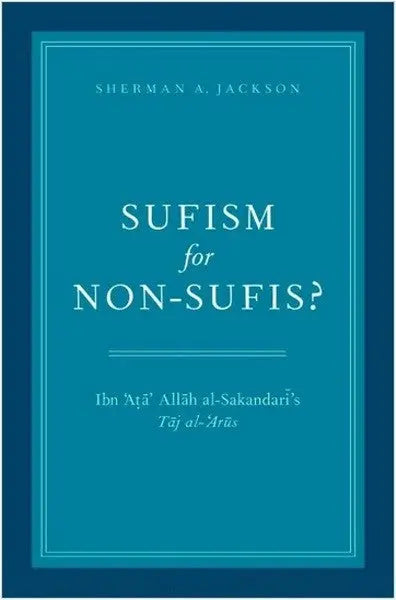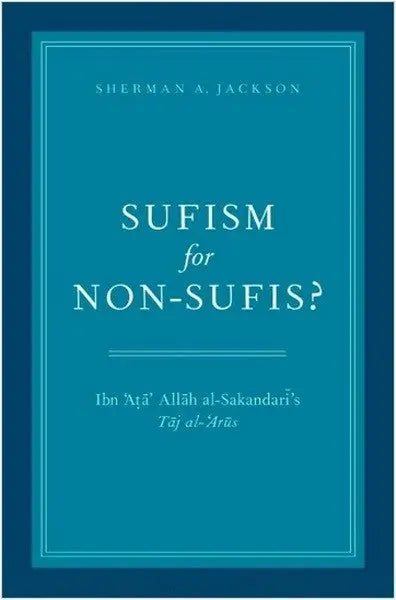Few forms of classical Islam are more controversial among modern Muslims than the spiritual discipline known as Sufism. Yet, in the face of the modern Muslim tendency to limit Islam's deployment to the emphatically political, few expressions of the religion could be more central to its spiritual vitality in the modern world. In his translation and analysis of Ibn 'Ata' Allah al-Sakandari's Taj al-'Arus, Sherman A. Jackson demonstrates that violent, lax, or rigid readings of the texts of Islam are just as much a result of the state of spiritual health, awareness, and fortitude of those who read and deploy them as they are of the substance of the Qur'an, Sunna, and the teachings of Islam's sages.
Sufism for Non-Sufi's: Ibn 'Ata' Allah al-Sakandari's Taj al-'Arus shows the effort of a renowned Sufi master (d. 1309 CE) to circumvent the controversies and misunderstandings concerning Sufism to explain Islam's tradition of devotional rectitude, spiritual refinement, and purification of the self to the everyday Muslim. To this end, al-Sakandari avoids virtually every aspect of Sufism known to raise problems for opponents or non-adepts - theological, institutional, even terminological - instead attempting to cultivate a proper relationship with God, not merely intellectually or theologically but experientially and psycho-dynamically. Written in the classical style of spiritual aphorisms, this work is a treasure-trove of classical Islamic spiritual wisdom, free of all of the usual barriers between Sufism and the common believer.
Features
- First English translation of an important and popular work by an exceedingly influential pre-modern figure
- Demonstrates that the spiritual state of those who employ a religious text is as important as the text itself in determining the social role of the text
Reviews
"The translation is excellent, the style is accessible and engaging, and the work of Ibn Ata Allah is appealing and wise. In his introduction to the text, Jackson offers original theological reflections on the authentic essence of Sufism and why it remains valuable, if not essential, for contemporary Muslims, or even more broadly to a modern audience facing perennial challenges to humans who seek a correct relationship with the divine."
--Marcia Hermansen, Professor of Theology, Loyola University Chicago
"'The Bride-Groom's Crown' is not yet another exotic treatise of medieval Islamic theosophy but a truly universal manual of liberation from our wild self. It is less a book than a spiritual firework: hundreds of aphorisms enriched with amazing metaphors, leaving hearts burnt but enraptured. Sherman Jackson's annotated translation is beautiful and his introduction enlightening. An outstanding contribution to scholarship and a must-read for every lost soul."
--Yahya Michot, Professor of Islamic Studies and Christian-Muslim Relations, Hartford Seminary
"A very readable translation of a work from an important but understudied genre of Islamic writing. An invaluable book for undergraduate courses and non-academic readers alike."
--Jamal J. Elias, Professor of Religious Studies, University of Pennsylvania
About Author:
Sherman A. Jackson is the King Faisal Chair of Islamic Thought and Culture, Professor of Religion, Professor of American Studies and Ethnicity, University of Southern California. A native of Philadelphia, he has taught at numerous universities in the US and has also taught abroad. He is an internationally recognized authority on Islamic law and theology and contemporary Islam in America. He has been named one of the 500 most influential Muslims in the world by the Royal Islamic Strategic Studies Centre, as well as one of the top 10 experts on Islam in the United States by the Religion Newswriters Association's ReligionLink.


